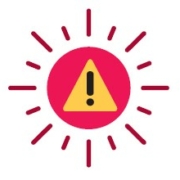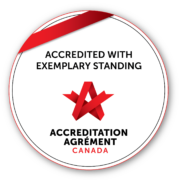Due to increased cases of COVID-19 in the Terrace East Assisted Living Apartment, Public Health has placed the building on Enhanced Monitoring. Please see the memo below for detailed information regarding dining, recreation activities, mask wearing and visiting. As the Terrace West Independent Living Apartment is connected to Terrace East, residents in this apartment will also be impacted. A separate memo for Terrace West residents is also included below.
Staff in Terrace East are required to wear masks.
MEMO
Date: June 3, 2024
To: Terrace East Residents
Re: Enhanced Monitoring – Update re: COVID-19 Cases
________________________________________________________________________
Dear Residents of Terrace East,
Unfortunately, I am writing to inform you have we have several cases of COVID-19 in Terrace East. Additionally, some staff and Terrace West residents are symptomatic. Please inform care staff if you aren’t feeling well.
Public health has placed Terrace East on Enhanced Monitoring. Effective immediately, the following protocols are in place:
- Dining Room is closed – staff will be delivering meals to each suite.
- Morning break snacks are available for pick-up only from the dining room (please pick up your snacks and enjoy them in your suite).
- In-person Recreation Activities are cancelled – watch channel 10. (We are postponing our Men’s Breakfast – stay tuned for the new date.)
- If you have symptoms (fever/chills, cough, shortness of breath, fatigue, muscle/body ache, headache, new loss of taste/smell, sore throat, congestion/runny nose, diarrhea/nausea/vomiting), we will place a cart by your door with personal protective equipment for anyone entering your suite.
- If you are sick, please stay in your suite unless you are on your way out of the building (and please wear a mask).
- Staff are required to wear masks.
- Visitors will be screened at the door and asked to wear a mask (please remind your visitors not to come visit if they are sick).
Thank you for your patience and understanding. We will get through this together. As a reminder, showing care and concern for each other is our overarching approach. Let’s do our part in stopping the spread.
Leonard Klassen, Manager of Community Enrichment
MEMO
Date: June 3, 2024
To: Terrace West Residents
Re: Update re: COVID-19 Cases in Terrace East – Impacting Terrace West
________________________________________________________________________
Dear Residents of Terrace West,
Public health has placed Terrace East on Enhanced Monitoring due to increasing numbers of residents with COVID-19 and has put screening and mask requirements in place for Terrace East. As a result of that, we are closing the dining room and stopping in-person recreation activities for both Terrace East and Terrace West.
Effective immediately, staff will be delivering your meals to your suite.
Morning break snacks will be available for pick-up in the Terrace West bistro.
I’d like to remind you that there are some activities available on channel 10. The bistro area remains open. Please note that we are postponing the Men’s Breakfast – stay tuned for the new date.
If you are sick, we are asking that you stay in your suite unless you are on your way in/out of the building, and we’d appreciate if you’d wear a mask in this situation. Symptoms to watch for include fever/chills, cough, shortness of breath, fatigue, muscle/body ache, headache, new loss of taste/smell, sore throat, congestion/runny nose, diarrhea/nausea/vomiting.
Thank you for your patience and understanding. We will get through this together. As a reminder, showing care and concern for each other is our overarching approach. Let’s do our part in stopping the spread.
Leonard Klassen, Manager of Community Enrichment
As a reminder for staff who are sick or experiencing covid, flu or cold symptoms:
Staff are not required to test with Rapid test kit
Staff are to stay home when sick and can return to work when:
- Symptoms improve and they feel well enough to work AND they are afebrile for 24 hours without the use of fever reducing medications
- Upon returning to work, all staff must wear a medical mask until day 10 from onset of VRI symptoms, even if symptoms have resolved
Any updates for staff will be communicated under the ‘Outbreak Updates’ section on our homepage HERE.
Thank you for playing your part in keeping our residents and other staff safe!












